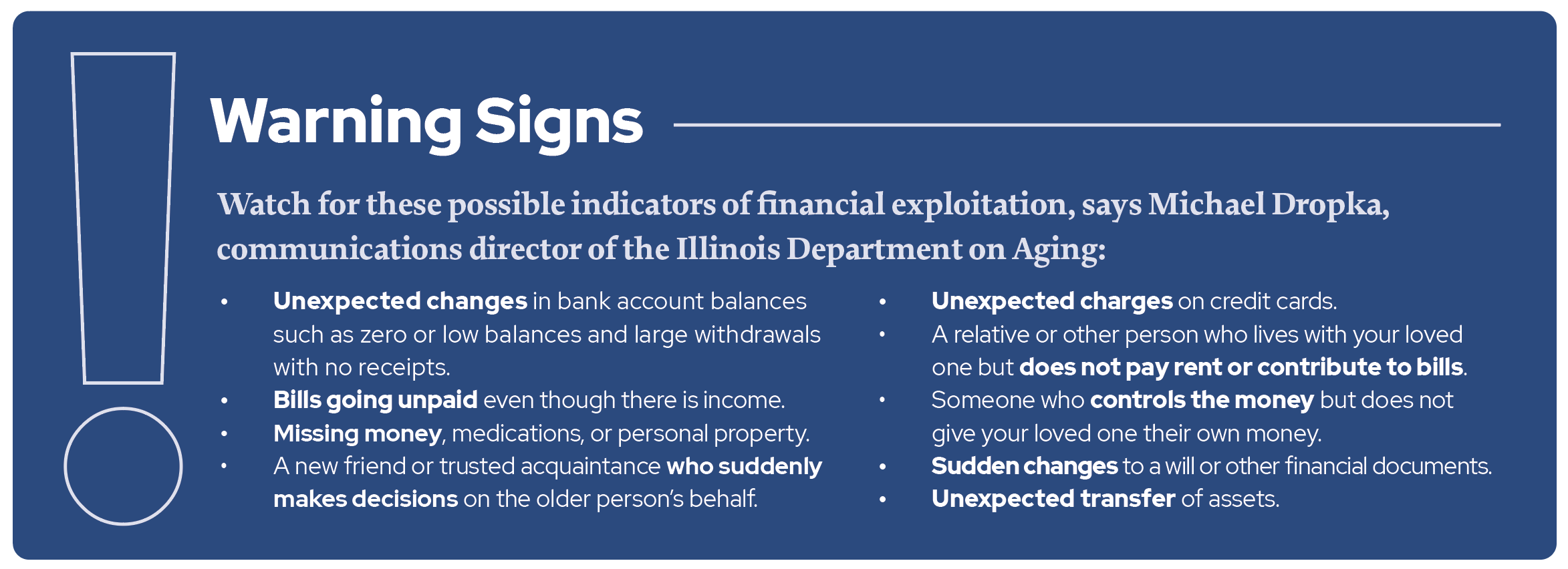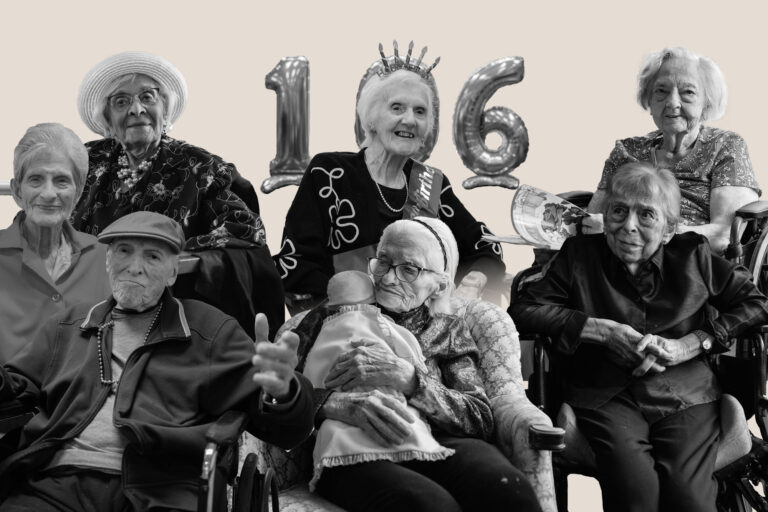Financially exploited? Family members are often perpetrators
As our loved ones age, we often worry that someone may take advantage of them financially. Most of us are aware of scammers — the strangers who target the elderly with deceitful phone, email, or internet messages to trick them out of money. But often, in what’s termed financial exploitation, someone familiar commits the abuse.
“Financial exploitation is more frequently committed by a family member,” says Michael Dropka, communications director of the Illinois Department on Aging.
Often, abuse, neglect, and exploitation — including financial exploitation — happens within families. In 2019, three out of four abusers were either the spouse, child, or other relative, according to the Illinois Department on Aging’s Adult Protective Services program.
Financial exploitation occurs when a person misuses or takes the assets of a vulnerable adult for the person’s own benefit, depriving the senior of vital financial resources for their personal needs.
At-risk populations
When 58-year-old Margaret Smith, who asked that her name be changed for privacy, saw that her chronically unemployed brother purchased a Jaguar and took his girlfriend on a high-end California vacation, she knew something was up.
In 2016, Smith had to step away from caregiving for her 82-year-old mother to focus on her own health after a heart attack. She trusted her brother to take care of their mother, who had declining cognitive and physical issues.
Smith knew that her mother was assisting Smith’s brother financially after his latest job loss. But she didn’t realize that her mother’s “help” was footing the bill for his extravagant lifestyle.
“He had no money in savings and used Mom’s money to pay for groceries, fine dining, his car payment, mortgage, and college tuition for his son — all to the tune of $5,000 to $6,000 a month,” Smith says. “He has now taken well over $100,000 from her.”
Individuals over age 85 who live alone, need help with daily activities, and are declining cognitively or physically are the most vulnerable to financial exploitation, says social worker Holly Lichtman, supervisor of adult protective services at the North Shore Senior Center. Adults with disabilities and cognitive impairments are also at risk.
“It is important to be particularly watchful for those people who have undue influence — trusted individuals who have access to vulnerable adults who can easily be taken advantage of,” she says.
Even if others try to alert the person being exploited of what’s happening, the person won’t necessarily believe it.
Smith says her mom trusts her brother implicitly. “My mom is starting to grow progressively mentally unstable,” she says. “When I mention that my brother might be taking advantage of her and that I would like to help her with her finances, she becomes violently angry and refuses.”

Spotting suspicious activity
Warning signs of financial abuse include unpaid bills, unusual credit card charges, and large withdrawals from banking accounts.
Under the 2018 federal Senior Safe Act, financial institutions such as banks, credit unions, and investment brokerages are training their employees to identify financial exploitation and to report the situation to local or state agencies.
“Banks train their tellers to spot suspicious behavior,” Lichtman says. “For instance, if an elderly person is with a younger person, [tellers] are trained to spot coercive types of conversations.”
Recently, Smith’s mother added her brother as a co-signer on her checking account, took out a home equity loan, and wrote Smith out of the will. “It makes me sick, and I worry my brother will not stop until he’s gone through all of her money,” says Smith, who has consulted an attorney.
It’s important to be educated about financial exploitation and to be able to spot the signs. Pay attention to possible indicators of financial abuse and be knowledgeable about resources that can help, such as adult protective services agencies.
“Families should talk about this before any health or medical issues become severe,” Dropka says. “They need to educate themselves and their loved one on the topic of financial exploitation.”
Resources
If you or a loved one are being financially exploited, turn to these resources:
Illinois Department on Aging’s 24-hour Adult Protective Services (APS) Hotline | 866-800-1409
Report suspected abuse, financial exploitation, or neglect of an older person or an adult with disabilities. The local APS agency can take confidential reports and assist in resolving the situation.
Illinois Department of Public Health | 800-252-4343
Long-Term Care Ombudsman Program | 800-252-8966
Supportive Living Facilities (SLF) Complaint Hotline | 800-226-0768
These agencies can take reports and assist in resolving situations specific to adults 60 and older who live in a nursing home or a licensed facility in Illinois.
Engage 2 Change | illinois.gov/aging/engage
Illinois Department on Aging’s #Engage2Change campaign encourages individuals to see abuse, report it, and make changes.









